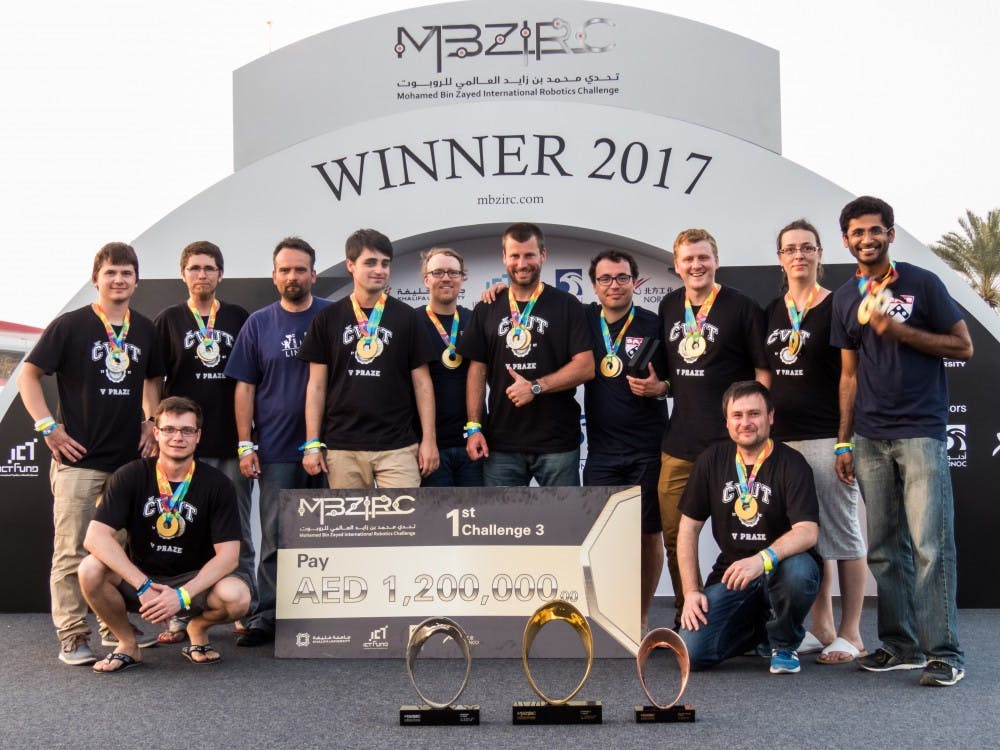
Photo from Giuseppe Loianno
Part of Penn Engineering Dean Vijay Kumar's lab, the Penn contingency took home a $350,000 cash prize.
A group of Penn researchers won big last month — and all it took was a trip halfway across the globe.
Along with teammates from the United Kingdom's University of Lincoln and Prague's Czech Technical University, three Penn researchers — Giuseppe Loianno, Dinesh Thakur and Justin Thomas — took home first place in one of three challenges at the Mohamed Bin Zayed International Robotics Challenge in Abu Dhabi.
Part of Penn Engineering Dean Vijay Kumar's lab, the Penn contingency took home a $350,000 cash prize.
The competition itself involved three individual challenges with a "grand challenge" at the end. One challenge involved a flying robot tasked with locating, tracking and landing on a vehicle that was moving in a "figure eight" motion.
The Penn representatives and their UK and Prague colleagues won second place (out of roughly two dozen teams) in the first challenge and first place in the third challenge — the team didn’t compete in the second challenge.
“It’s also a very different research platform. Challenges one and three were aerial robots and challenge two was a ground robot,” Thomas said. "We decided that it would be a little too much to do all of them."
Because the Penn researchers didn’t compete in the second challenge, they were originally ineligible to compete in the aggregate grand challenge. However, because of their success in challenges one and three, the tournament organizers allowed Penn to team up with the University of Padua for the second challenge. The combined team, hampered by a technical malfunction, placed third in the grand challenge.
A key component of the competition was the robots' ability to operate without manual intervention. The scores registered by autonomous robots were automatically ranked above those of manual ones.
“We were one of the few teams that ran everything autonomously. If you are autonomous, then you [score] above everything manual,” Loianno said.
Loianno, Thakur and Thomas had been working on the robots for the competition since last May. Penn was part of the competition's only multi-university team, collaborating with the two other universities to program and physically build the robots for the competition.
“There was an exchange of ideas, hardware and software,” Loianno said.
Thakur added that the collaboration with other universities brought logistical challenges, mentioning that the team had to go to Prague in October.
Though the competition lasted only a handful of days, Loianno, Thakur and Thomas spent three weeks in the United Arab Emirates “ironing out the details,” Thomas said.
“Your team has to really unite,” he said.
The Daily Pennsylvanian is an independent, student-run newspaper. Please consider making a donation to support the coverage that shapes the University. Your generosity ensures a future of strong journalism at Penn.
Donate







